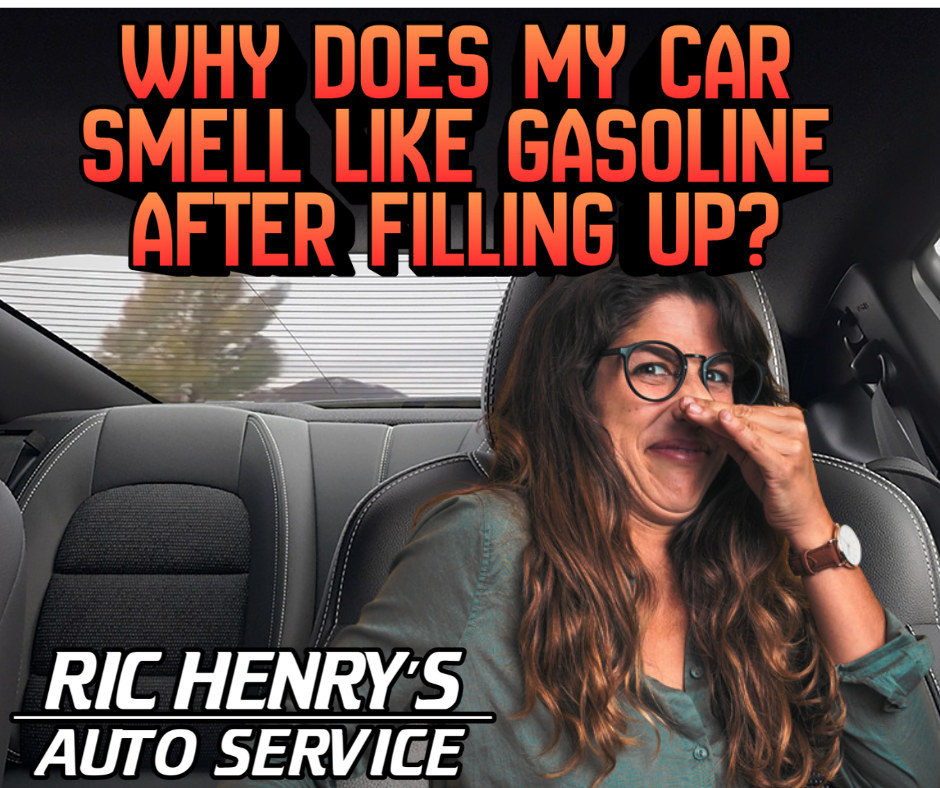"Is My Wheel Bearing Going Bad?"
NaTasha Brand • May 23, 2025
Is Your Car Growling? It Might Be Wheel Bearings (And Why Ric Henry’s Can Help!)

Wheel Bearings: The Silent Heroes (Until They’re Not So Silent)
Your car’s wheel bearings are like the quiet coworker who does all the heavy lifting—until they finally snap and start making a scene. These little components keep your wheels spinning smoothly, but when they wear out, they won’t let you forget it. Let’s dive into why they matter, how to know when they’re failing, and whether you should tackle repairs yourself or leave it to the experts at Ric Henry’s Auto Service.
What Are Wheel Bearings? (And Why Should You Care?)
Wheel bearings are small but mighty—metal balls or rollers sandwiched between two rings (called races) that let your wheels spin with minimal friction. Without them, every drive would feel like dragging a stubborn shopping cart with a wobbly wheel.
Why Are They So Important?
• Smooth rides – They keep your wheels rotating effortlessly, so you’re not fighting your car at every turn.
• Safety first – A bad bearing can cause wobbling, uneven tire wear, or even a wheel detachment (yikes).
• Fuel efficiency – Less friction = better gas mileage.
"Is My Wheel Bearing Going Bad?" (The Telltale Signs)
Your car will absolutely let you know when a wheel bearing is on its way out. Listen and watch for:
🔊 Grumbling or growling noises – Especially when turning (it’s not your stomach—it’s your wheel bearing).
🚗 Vibration or shaking – Like your car suddenly thinks it’s a massage chair.
🛞 Uneven tire wear – If one tire is balding faster than the others, your bearings might be to blame.
🤏 Wheel wobble – Grab your tire at 3 and 9 o’clock—if it wiggles, your bearing might be toast.
Can you drive with a bad wheel bearing?
Technically, yes—but should you? Absolutely not. A failing bearing can seize up or even cause your wheel to come loose. Not exactly the kind of surprise you want on I-20.
Why Do Wheel Bearings Fail? (Spoiler: Texas Roads Don’t Help)
• Potholes & rough roads – San Angelo streets can be brutal on suspension parts.
• Lack of lubrication – Dry bearings wear out fast.
• Water & dirt contamination – Off-roading or deep puddles can ruin good bearings.
• Age & mileage – Like knees after 40, they just wear out over time.
DIY vs. Pro Repair: Should You Tackle It Yourself?
When DIY Might Work:
✅ You’re experienced with suspension work.
✅ You have a press, torque wrench, and patience.
✅ You enjoy swearing at stubborn parts for hours.
When to Call Ric Henry’s:
🔧 You’re not 100% confident (this isn’t a "learn as you go" job).
🔧 You lack a hydraulic press (most DIYers do).
🔧 You value your time and sanity.
Pros of Professional Repair:
✔️ Done right the first time.
✔️ Warranty on parts & labor.
✔️ No risk of reassembling your car with "extra bolts."
How to Make Your Wheel Bearings Last Longer
1. Listen to your car – Strange noises? Get it checked.
2. Avoid potholes – Easier said than done in Texas, but try.
3. Regular inspections – Every 30,000 miles or after a major curb impact.
4. Proper lubrication – If you’re doing brake work, check the bearings too.
If your car sounds like it’s growling at you, bring it to Ric Henry’s Auto Service in San Angelo, TX. Our team will diagnose the issue, explain your options, and get you back on the road safely—no guesswork required.
Schedule an inspection today—because your wheels deserve to spin smoothly!






Share On: